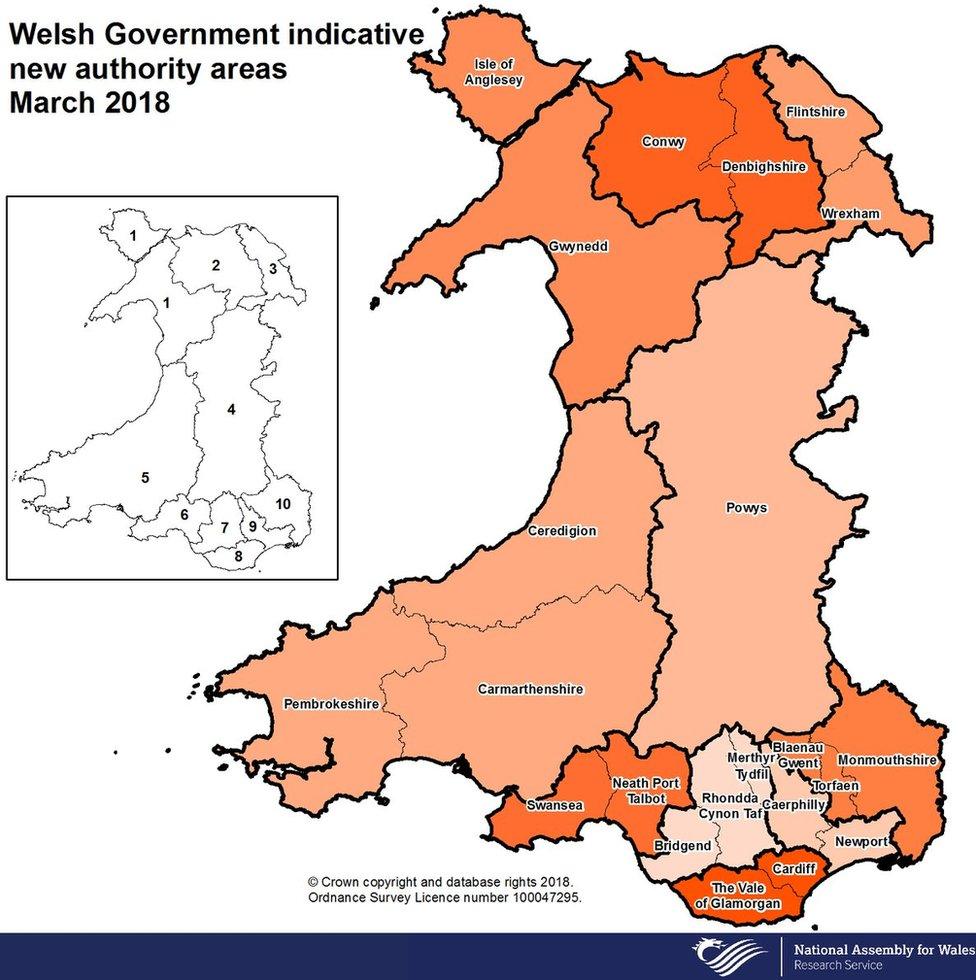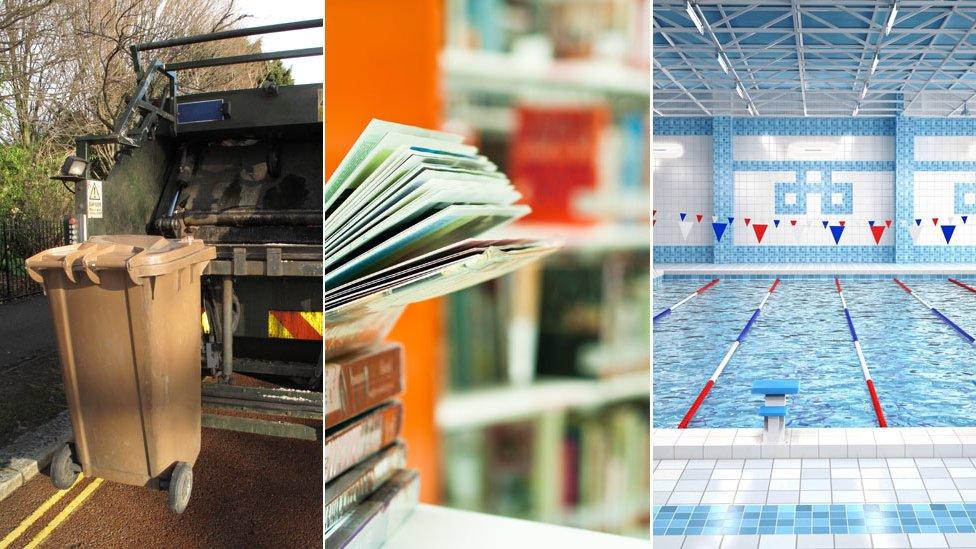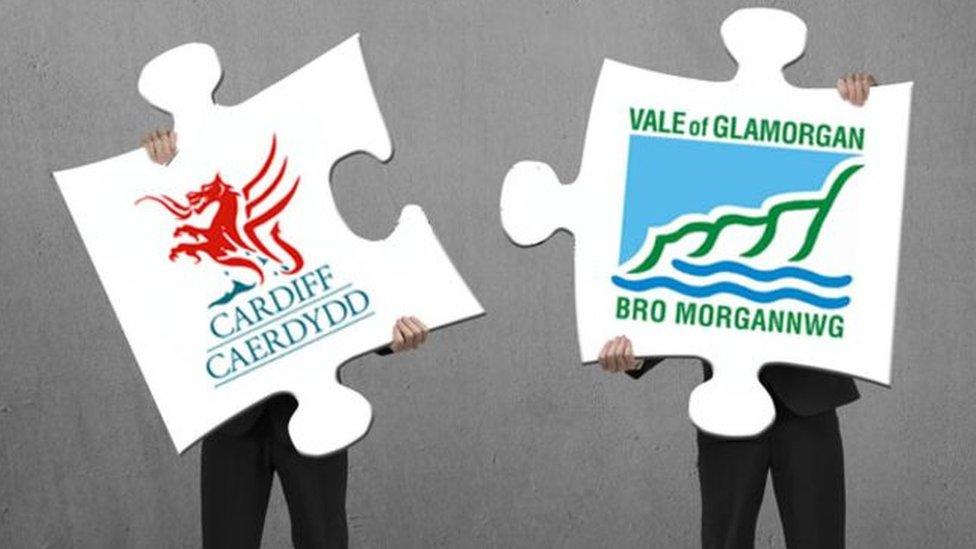Welsh councils clash with Alun Davies on merger plans
- Published
Tell me what you want, then lead that change, Alun Davies tells council leaders
The local government secretary has clashed with council leaders over the revival of plans which could cut the number of authorities.
Alun Davies told a meeting in Cardiff that unless councils embraced change, "they will be shaped by that change".
Newport council leader Debbie Wilcox accused him of recycling failed plans.
She got a standing ovation at the Welsh Local Government Association (WLGA) gathering for claiming councils had done "all the heavy lifting" on cuts.
Responding to criticism from a fellow Labour politician, Mr Davies said that such an impassioned debate "made good television, but not good politics".
The exchanges on Friday came just days after Mr Davies published plans that could see Wales' 22 councils cut to as few as 10.
Previous merger plans were scrapped after the 2016 assembly election in favour of forced regional joint working, which Mr Davies says is still an option.
However, he has told AMs he did not believe his "vision of powerful, robust and energised local government can be built without a serious debate about local government structures".
Wrexham council's independent leader Mark Pritchard described the ongoing debate about local government reform as "a cross between Fawlty Towers, Some Mothers Do 'Ave 'Em and Yes Minister".
Debbie Wilcox dismissed any idea that council mergers would solve their financial problems
Dyfrig Siencyn, Plaid Cymru leader of Gwynedd council, suggested to Mr Davies that he had "got the message' from council leaders that there was little support for his proposals.
Mr Davies acknowledged with a wry smile that he had "got the message very clearly".
Commenting on the meeting later, Mr Davies said councillors had "expressed themselves forcefully and that is what I'd expect at this stage of our discussions".
"I've asked for a debate and I welcome the chance to engage," he said.
"I was pleased that councillor Debbie Wilcox, leader of the WLGA, accepted that 22 local authorities are not sustainable and was willing to take up my challenge to come forward with alternative proposals for taking local government forward if the WLGA did not like the options in the Green Paper [consultation document].
"I share councillors' passion for ensuring that people get the services they need. Now we need to get on with discussing how best to deliver them."

The Welsh Government's proposals could leave Wales with ten councils
The Welsh Government has outlined three options about how the mergers of councils could happen:
Option 1 - Voluntary mergers
Option 2 - A phased approach with early adopters merging first followed by other authorities
Option 3 - A single comprehensive merger programme
Responding to the plans on Tuesday, the WLGA said: "Local government was already responding proactively to the previous reform programme of regional collaboration and is progressing with the City and Growth Deal agenda.
"Consequently, this announcement has caused disquiet and confusion. It has arrived midway through the assembly term and following the recent WG [Welsh Government] assurance that no re-organisation would occur for 10 years."
The body added: "Merging authorities on the breadline to create larger authorities without the necessary resources is not a sustainable solution to the problems councils face."
The green paper proposes ten possible new council areas, which would result in the mergers of:
Isle of Anglesey and Gwynedd
Conwy and Denbighshire
Flintshire and Wrexham
Ceredigion, Pembrokeshire and Carmarthenshire
Swansea and Neath Port Talbot
Bridgend, Rhondda Cynon Taf and Merthyr Tydfil
Vale of Glamorgan and Cardiff
Newport and Caerphilly
Torfaen, Blaenau Gwent and Monmouthshire
Powys would remain unmerged under the proposal.
The new authorities would be aligned with health board boundaries, with plans for Bridgend to come under the Cwm Taf health board.
- Published20 March 2018

- Published6 March 2018

- Published28 February 2018

- Published8 March 2018

- Published10 October 2017

- Published4 October 2016
